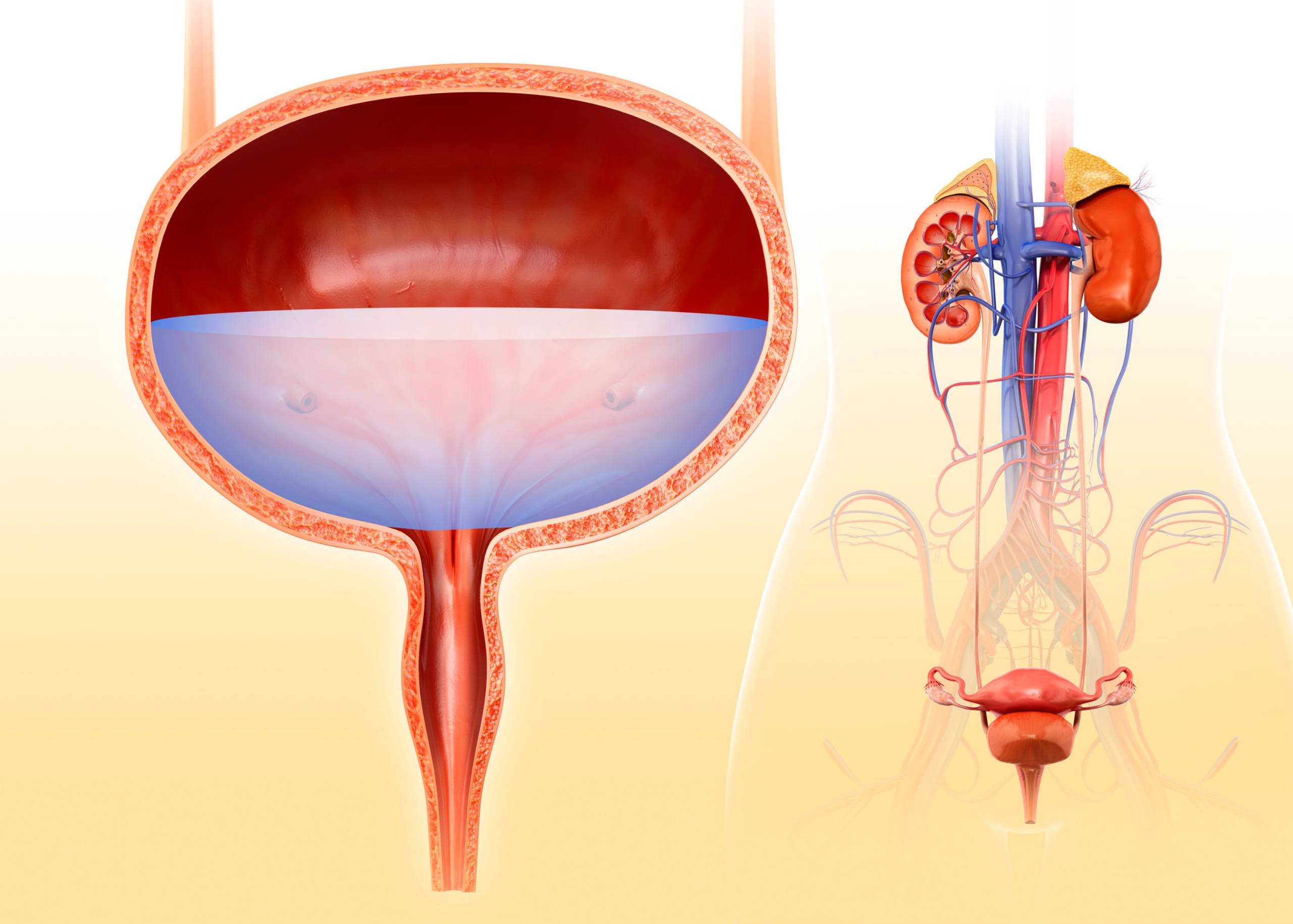Bladder cancer is a disease that affects the bladder, which is located in the lower part of your pelvis. The bladder is a hollow, muscular organ that stores urine. Urine flows from the kidneys to the bladder through tubes called ureters. When you urinate, urine flows out of the body through another tube called the urethra. Bladder cancer is a disease that begins in cells in your bladder and spreads beyond it. It can affect other organs, such as the lymph nodes or prostate gland (in men).
Symptoms of Bladder Cancer
Symptoms of bladder cancer include,
- Urinary symptoms such as pain, blood in your urine, or frequent urination
- Back pain or pain in the lower abdomen
- Blood in your stool or vomit (may be caused by bleeding from the anus)
- Weight loss without trying to lose weight
- Trouble breathing or swallowing
Causes of Bladder Cancer
Bladder cancer is caused by the uncontrolled growth of abnormal cells in the bladder. It is also referred to as transitional cell carcinoma, squamous cell carcinoma, or adenocarcinoma. Normally, bladder cells are able to grow and divide in a controlled manner. However, when a mutation in certain genes controls cell division, the cells can continue to divide and grow without stopping, causing them to become cancerous. There are two main types of mutations: chromosomal and molecular. Chromosomal mutations are changes in DNA that occur when chromosomes break apart and then rejoin incorrectly. This can cause a change in how proteins are formed or stop them from being produced altogether. Molecular mutations occur when proteins don’t function properly or aren’t produced at all because they’re defective or missing altogether.
Types of Bladder Cancer
There are several types of bladder cancer, including urothelial carcinoma, squamous cell carcinoma, and adenocarcinoma.
Urothelial carcinoma is the most common type of bladder cancer in adults and accounts for 90% of all cases. It usually occurs in the bladder’s inner lining and can be treated successfully with surgery, chemotherapy, or radiation therapy.
Squamous cell carcinoma is another common form of bladder cancer that develops in the outer layer of cells lining the bladder’s surface. This type of cancer is typically treated by removing the tumor with surgery and chemotherapy to kill remaining cancer cells.
Adenocarcinoma is a rare form of bladder cancer that develops from mucus-producing glandular tissue inside the bladder. It tends to grow slowly but may spread rapidly if not detected soon enough.
Risk Factors of Bladder Cancer
The risk factors for bladder cancer include:
- Tobacco smoking
- Alcohol consumption
- Occupational exposure to strong chemicals, including aniline dyes and rubber chemicals
- Exposure to radiation, like uranium or radon gas
- Genetic conditions such as hereditary nonpolyposis colorectal cancer (HNPCC), familial adenomatous polyposis (FAP), Lynch syndrome, and multiple endocrine neoplasia type 1 (MEN1)
- Age: The risk increases with age. All people over 50 should have an annual test called a cystoscopy to check for early signs of bladder cancer
- Gender: Men are more likely than women to develop it
Diagnosis
Bladder cancer is usually diagnosed by cystoscopy, biopsy, and imaging tests.
Cystoscopy is a procedure in which a thin, lighted tube (cystoscope) is inserted through the urethra to examine the inside of the bladder. The doctor can look for abnormal areas that may be cancerous or pre-cancerous. A sample of tissue from any suspicious areas can be taken during cystoscopy for further evaluation.
Biopsy is the removal and examination of tissue to look for signs of cancer. The doctor performs a biopsy by inserting a thin needle into an area of concern through the skin and taking a sample of tissue for examination under a microscope.
Urine Cytology involves examining cells in urine under a microscope to detect abnormal cells that may indicate bladder cancer.
Treatment
The treatment depends on the type of cancer cells and how advanced they are.
Targeted therapy is a form of immunotherapy that uses drugs to block specific molecules in cancer cells, which can help slow down or stop the growth of tumor cells.
Chemotherapy is a drug treatment that uses chemicals to kill cancer cells.
Radiation therapy is a treatment that uses high-energy radiation to kill cancer cells and shrink tumors. Immunotherapy is a type of treatment that helps your body fight off disease by boosting your immune system’s ability to fight cancer cells.
Bladder Cancer Surgery
Bladder cancer surgery involves removing the tumor, preserving the ureter, and reconnecting it with the bladder to prevent urinary incontinence.
Transurethral resection of bladder tumor (TURBT): This procedure is performed through a small incision in the perineum using a laser to cut out a portion of the tumor. The remaining part of the tumor is removed by shaving it off.
Cystectomy: This procedure removes all tumors in one operation. In some cases, it may be performed via laparoscopy, and in others, via open surgery. It can also be done using robotic technology for less invasive procedures.
Neobladder Reconstruction: A neobladder is a tube that connects an ileal conduit to a continent urinary reservoir (CUR). The CUR collects urine from your kidneys and passes it into your bladder when you are urinating.
Ileal conduit is a type of urinary diversion. It involves inserting a catheter into the small intestine and then connecting the catheter to a bag of fluid that can be drained. The ileal conduit is used when there is no bladder left after bladder cancer surgery.
Continent Urinary Reservoir is a type of urinary diversion in which two tubes are inserted into the bladder. One tube connects to the ureters and drains urine from the kidney; another tube connects to the urethra, and urine can flow through it directly into the bag of fluid. Continent reservoirs are used when there is no bladder left after bladder cancer surgery.
Our Uro-Oncologists at Burjeel Medical City have experience treating bladder cancer. They will work closely with you to create an individualized treatment plan that will meet your needs and goals.

























